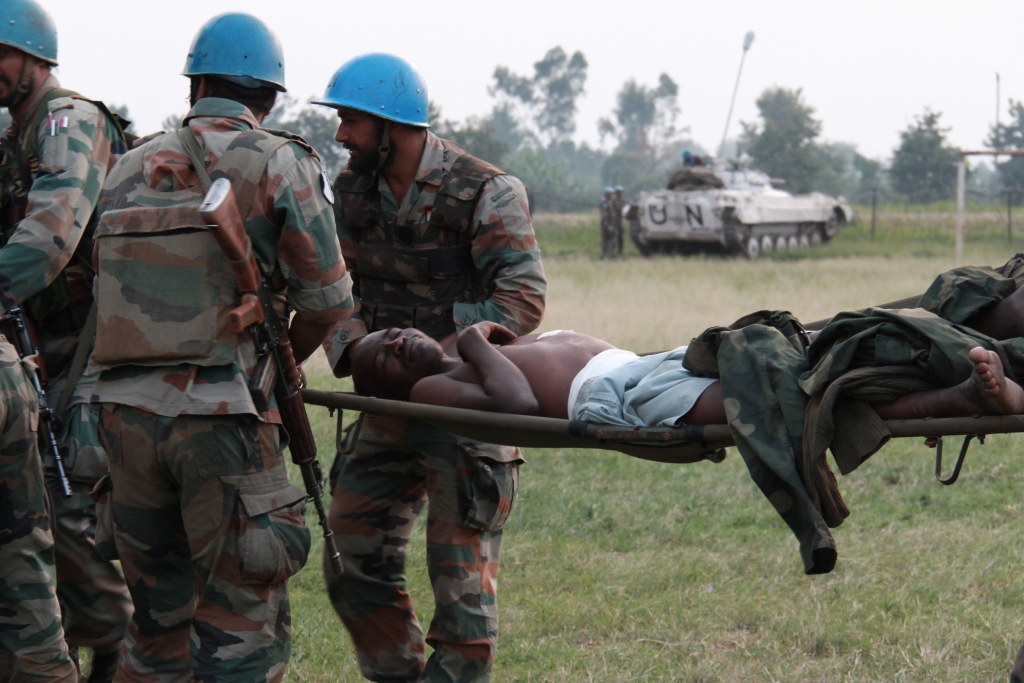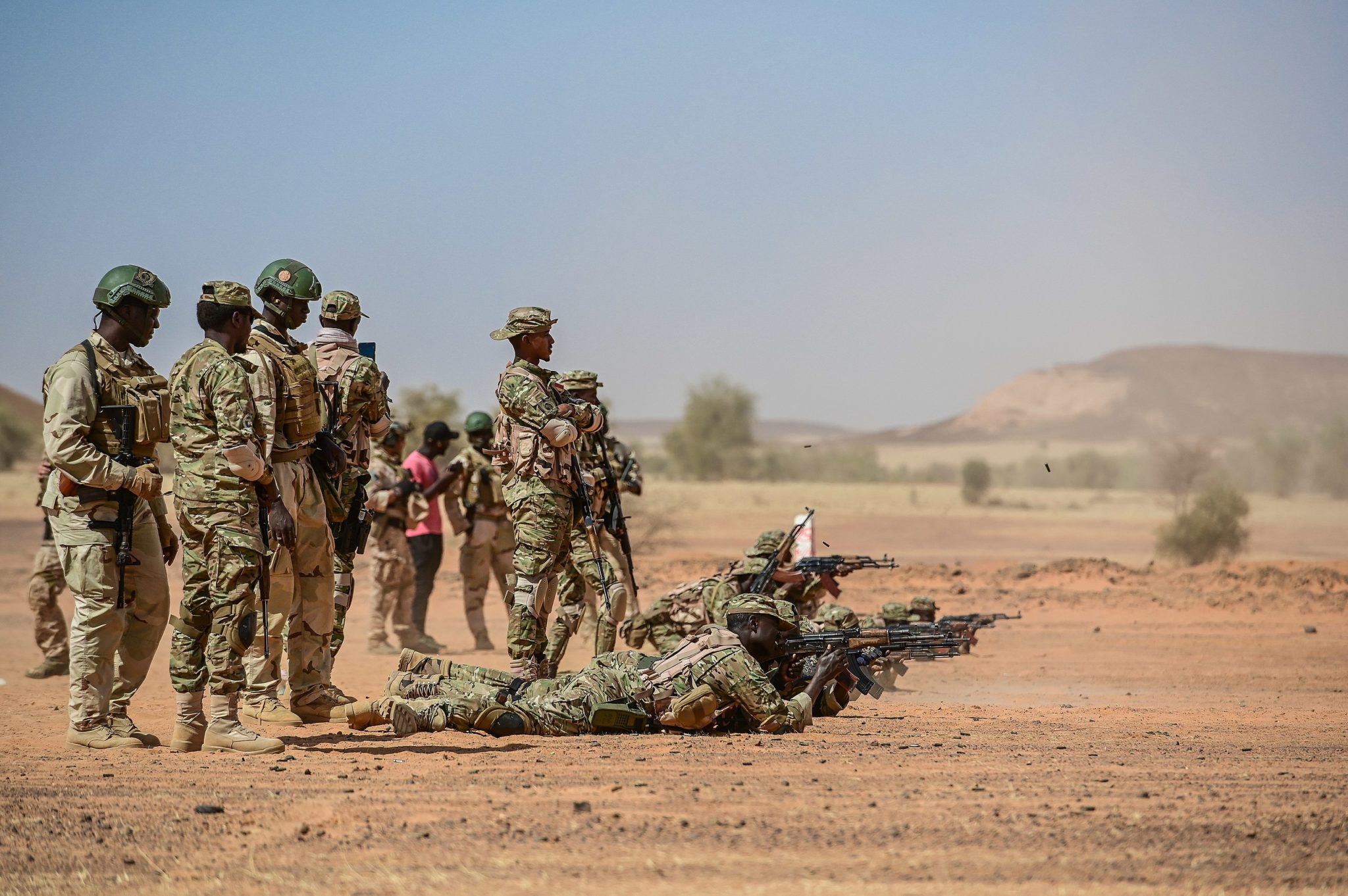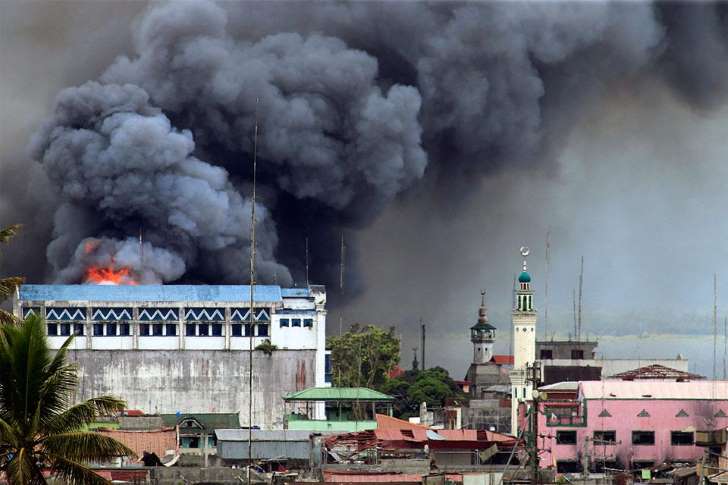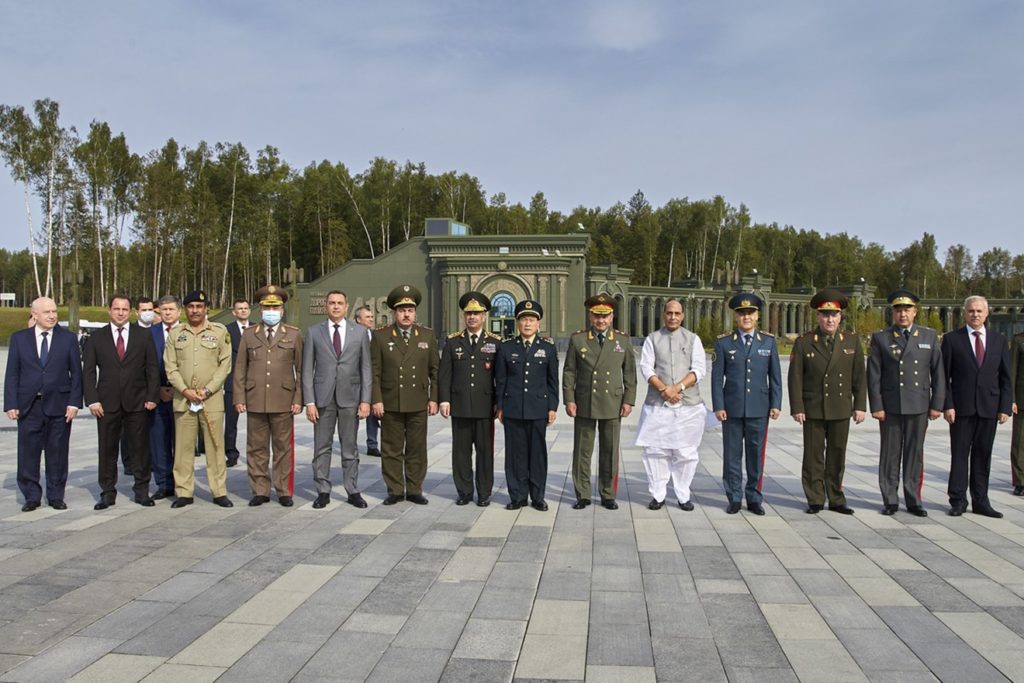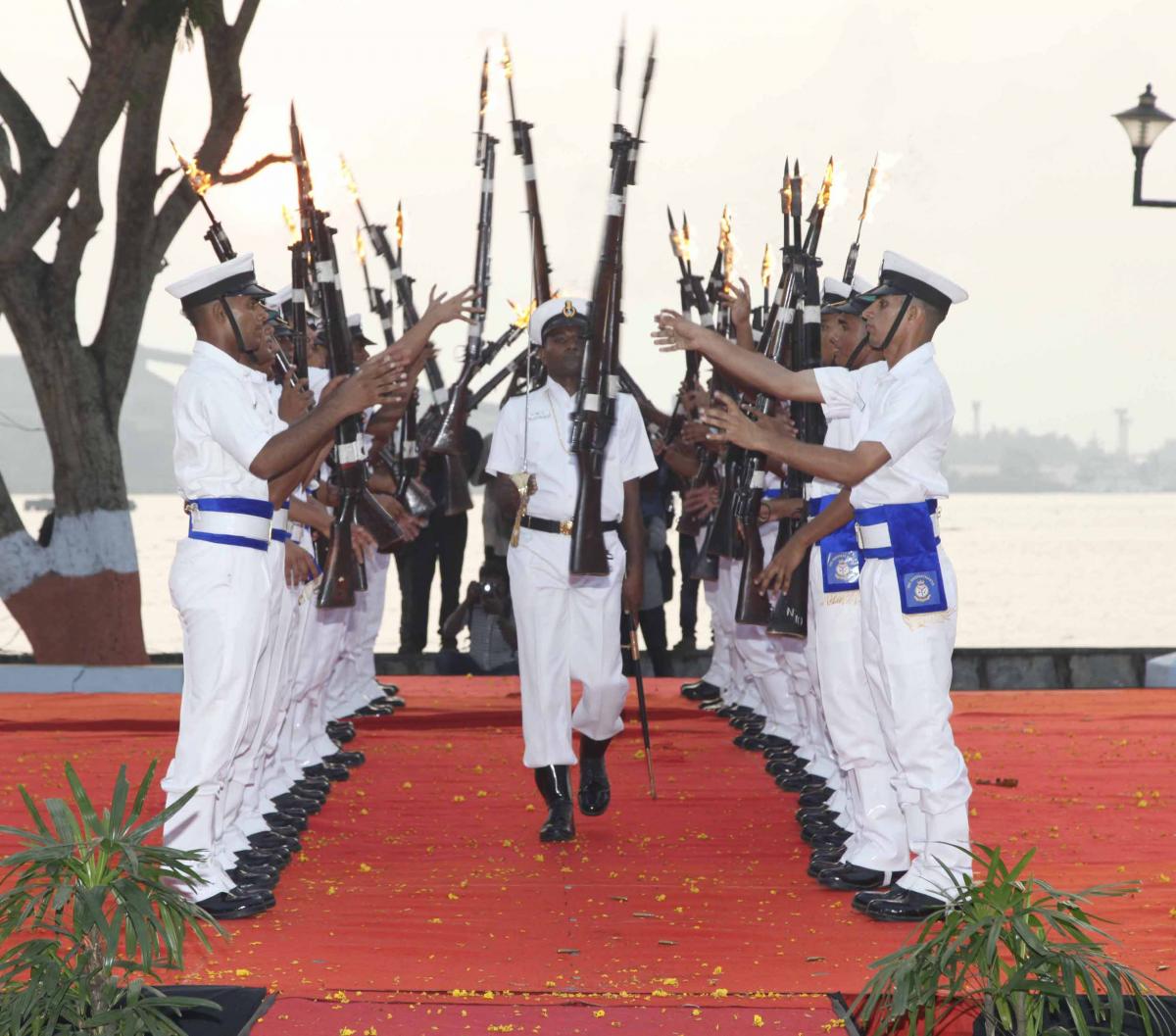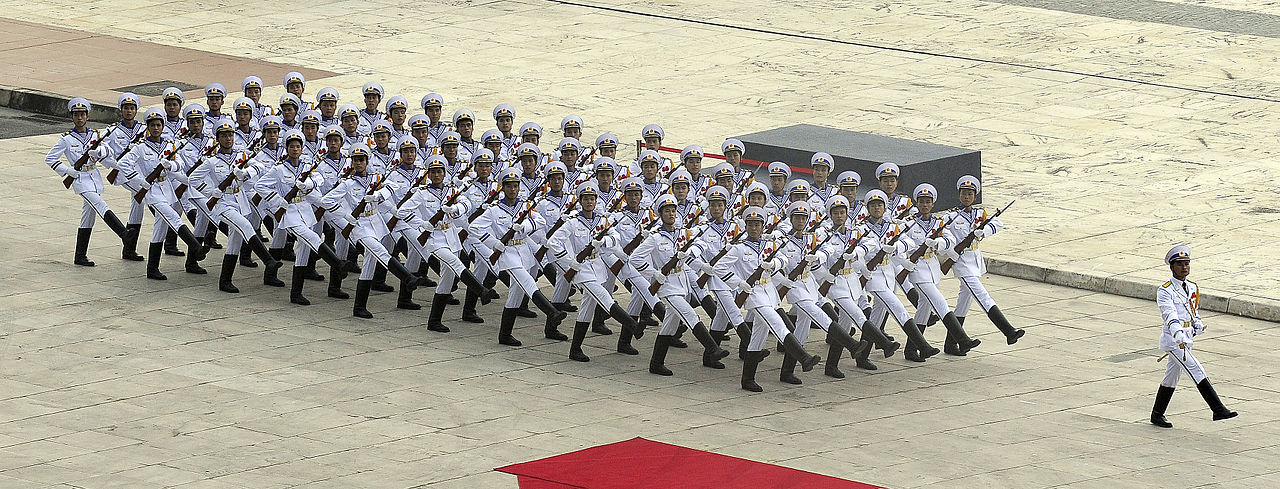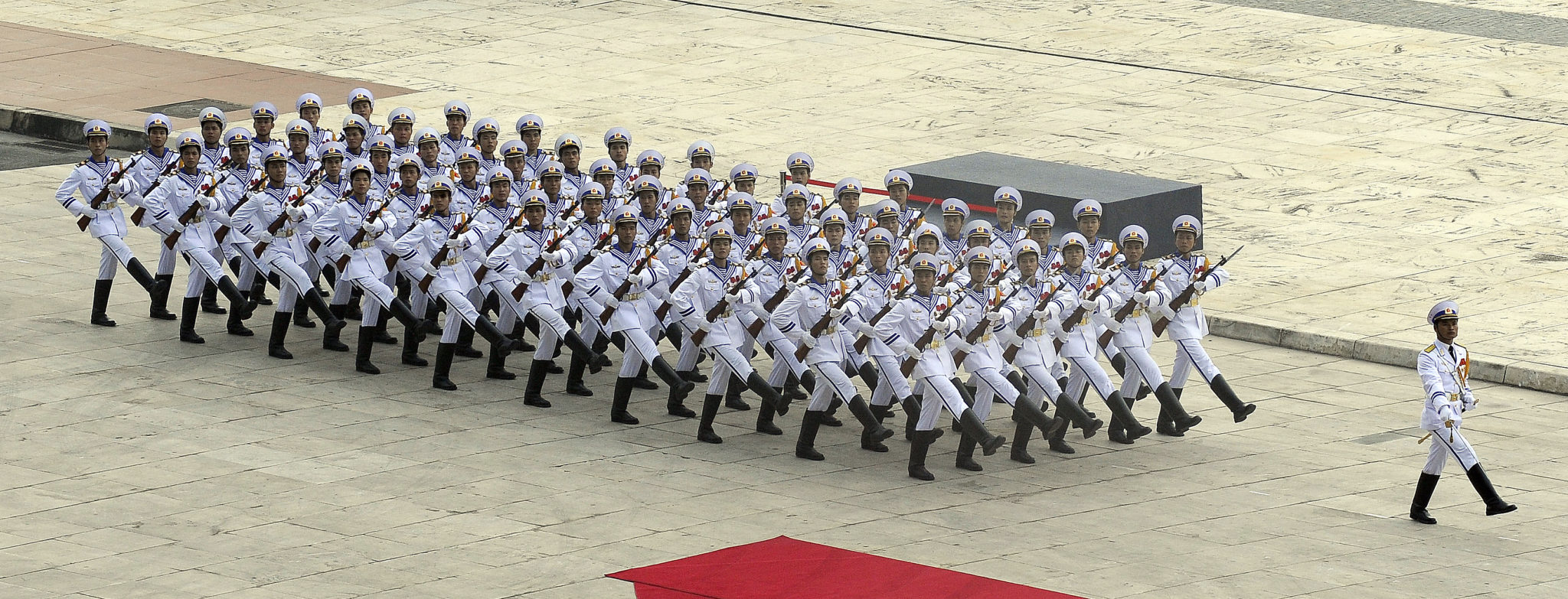
Vietnam People’s Navy honor guard at ASEAN defense ministers meeting.
“It was very important to demarcate the overlapping waters between Vietnam and Indonesia…”
Over the past 10 years, Indonesia and Vietnam have clashed in the South China Sea, which Vietnam calls “The East Sea,” and which Indonesia calls “The North Natuna Sea.” For example, in 2021, Indonesia seized 25 Vietnamese fishing boats and then detained and extradited more than 350 Vietnamese fishermen.[i] Prior to this incident, in 2019, a Vietnamese coast guard boat and an Indonesian naval boat crashed into each other in disputed waters.[ii] Before that, in 2014, the Indonesian navy accused Vietnamese fishing boats of entering Indonesian waters and sunk three Vietnamese boats.[iii] However, the excerpted article published by the pro-government Vietnamese publication tuoitre, noted that after 12 years of negotiations, Vietnam has proposed a boundary line in the waters with Indonesia, which Indonesia has accepted. According to the article, this boundary line will allow Vietnamese fishermen to avoid disputed waters and end the maritime clashes between the two countries. According to the excerpted article from Vietnamese military newspaper quân đội nhân dân the agreement followed the “Sea of Peace-Sustainable Resolution” conference. At the conference, experts recommended Vietnam cooperate with ASEAN nations based on international law to resolve disputes.[iv] This was subsequently achieved with Indonesia and will allow ASEAN nations to be more unified when confronting maritime disputes with China, either diplomatically or military.
Sources:
“Việt Nam – Indonesia hoàn tất đàm phán phân định vùng đặc quyền kinh tế trên biển” (Vietnam – Indonesia complete negotiations on demarcation of exclusive economic zones at sea”),” tuoitre.vn (pro-Communist Party newspaper covering current affairs and originally aimed at youth audiences), 12 December 2022. https://tuoitre.vn/viet-nam-indonesia-hoan-tat-dam-phan-phan-dinh-vung-dac-quyen-kinh-te-tren-bien-20221222143434761.htm
Since 2010, the two countries have had dozens of rounds of negotiations regarding overlapping EEZ claims in the waters surrounding the Natuna Islands in the East Sea. The two sides have concluded negotiations on the demarcation of the exclusive economic zone on the basis of international law and the United Nations Convention on the Law of the Sea (UNCLOS) 1982
It was very important to demarcate the overlapping waters between Vietnam and Indonesia, because this was the justification for Vietnamese fishermen being accused by Indonesia of “fishing in Indonesia’s exclusive economic zone.”
“Hội thảo quốc tế về Biển Đông ‘Biển hòa bình – Phục hồi bền vững’ (International Conference on East Sea ‘Sea of Peace-Sustainable Resolution’),” qdnd.vn (Russian-language daily focusing on business and politics), 16 November 2022. https://www.qdnd.vn/xa-hoi/tin-tuc/hoi-thao-quoc-te-ve-bien-dong-bien-hoa-binh-phuc-hoi-ben-vung-711217The principles in the South China Sea will help shape other principles in other seas and oceans. Maintaining an order at sea, emphasizing compliance, trust and cooperation, more than ever before, is essential to ensuring a sustainable resolution. Vietnam’s policy on the East Sea is to fully respect and comply with international law, especially the 1982 United Nations Convention on the Law of the Sea (UNCLOS 1982).
Notes:
[i] “Indonesia returns 166 detained fishermen to Vietnam,” RFA, 16 November 2014. rfa.org/english/news/vietnam/returns-11162021162820.html
[ii] “Indonesian, Vietnamese vessels clash over illegal fishing,” AFP, 29 April 2019. youtube.com/watch?v=SZh5t2y2NxY
[iii] Mathias Hariyadi, “Jakarta sinks three Vietnamese fishing boats caught in its territorial waters,” Asia News, May 12, 2014. https://www.asianews.it/news-en/Jakarta-sinks-three-Vietnamese-fishing-boats-caught-in-its-territorial-waters-32882.html
[iv] Notably, prior to 2021, there was little optimism in the academic community that Indonesia and Vietnam would reconcile their maritime claims. However, Darwis and Putra noted that Indonesian President Jokowi sought to take a less confrontational stance when dealing with ASEAN navies in disputed waters. See Darwis and Bama Andika Putra, “Construing Indonesia’s maritime diplomatic strategies against Vietnam’s illegal, unreported, and unregulated fishing in the North Natuna Sea,” Asian Affairs: An American Review, 49:4, 172-192, 2022. https://www.tandfonline.com/doi/full/10.1080/00927678.2022.2089524
Image Information:
Image: Vietnam People’s Navy honor guard at ASEAN defense ministers meeting
Source: https://commons.wikimedia.org/wiki/File:Vietnam_People%27s_Navy_honor_guard_at_ASEAN_defense_ministers_meeting_2010-10-12_1.jpg
Attribution: Master Sgt. Jerry Morrison, U.S. Air Force, CC x 2.0

